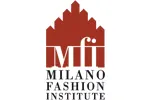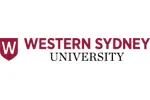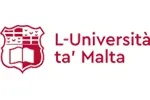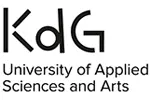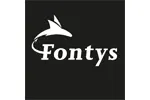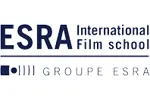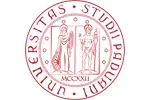MILANO FASHION INSTITUTE: THE BUSINESS SCHOOL WITH DIRECT ACCESS TO THE FASHION INDUSTRY
A place where passion, creativity, and excellence in education come together to prepare you to become the leaders of tomorrow in the fashion system.
Since its founding in 2007, MFI has been dedicated to becoming the reference point for excellence in fashion system training in Italy, shaping the next generation of managers for the international fashion industry.
Located in Milan, the epicenter of luxury and ready-to-wear fashion, MFI places students directly in the heart of the vibrant and ever-evolving fashion world, offering unrivaled access to the industry’s top brands and latest trends.
THE EPICENTER OF THE FASHION SYSTEM
Since its foundation, Milano Fashion Institute has been characterized by multidisciplinary didactic programs and by the unique faculty at an international scale: university professors and Supporting Partners, managers of successful companies, together to integrate management, design, and communication, to lead junior professional among the most qualified in the field and appreciated by the Fashion and Luxury System.
Attending Milano Fashion Institute represents a unique opportunity: on a professional level, thanks to the faculty, and the Career Service, and on a personal level, living a whole year in Milan, the European capital of Fashion and Luxury, as well as the country's financial and entrepreneurial capital.
WHY MILANO FASHION INSTITUTE
> EXCLUSIVE ACCESS TO THE HEART OF FASHION
In partnership with the Fashion Council, a key player in the global fashion industry, we grant students exclusive access to a prestigious network of international fashion and luxury brands. This creates unparallel opportunities for collaboration, internships, and career development in the heart of the fashion system.
> LAUNCHING CAREERS WITH INDUSTRY CONNECTIONS
At Milano Fashion Institute, we are dedicated to facilitating your career launch by connecting students with leading fashion and luxury companies. Our aim is to ensure every graduate steps into the professional world with a solid industry network and hands-on experience.
> A GLOBAL VISION FOR FUTURE LEADERS
Internationalization is woven into our core identity. We offer students a global perspective, fostering international collaborations and granting direct access to the world’s foremost fashion markets – nurturing the future leaders of the industry.
> MASTERING THE CRAFT FOR FASHION EXCELLENCE
Our programs provide students with a comprehensive understanding of the fashion industry while refining specialized skills, empowering them to excel in their chosen fields with confidence and expertise.
EXPERIENCING THE WORKPLACE
All over the year, MFI Masters provide a full calendar of activities in direct contact with the job market, including team field projects with real case studies in collaboration with leading companies, company visits, itinerant seminars, guest speeches, as well as internships, lasting a minimum of 3 months, one of the most salient experiences offered by the Masters. An extensive network of companies is involved in order to create the ideal setting for effective contact with the job market.
INCUBATOR OF TALENTS
Masters are addressed to student profiles, mainly aged between 22 and 29 years, both Italians and foreigners with a good knowledge of the English language. Students must have a B.A., MSc. or equivalent in order to apply and have to pass a preliminary selection process in order to be accepted.


